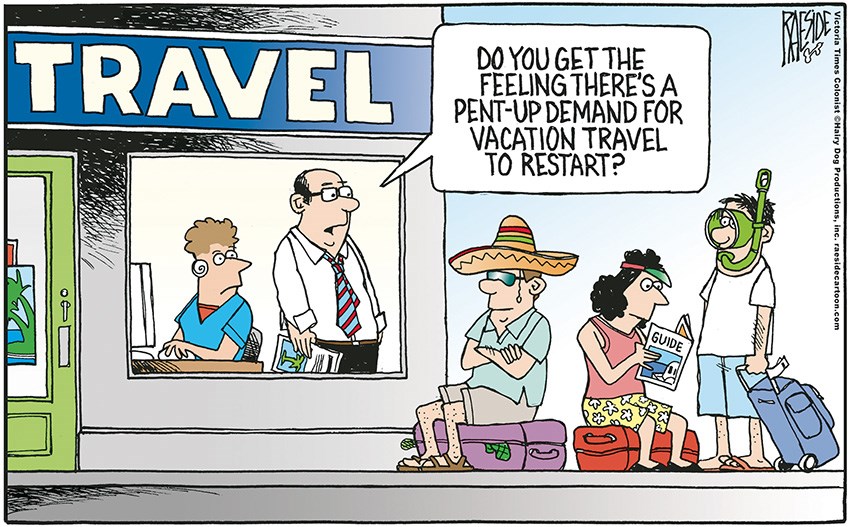It’s pretty sad when a large segment of the community dreads the coming of “May Long,” but that’s how it feels on the Sunshine Coast as Victoria Day approaches.
Ever since the B.C. government confirmed late last month that travel to the Sunshine Coast from the Lower Mainland would not be restricted under the April 23 emergency order, local governments and individual citizens have been urging the NDP to reconsider.
The fear is that restricting ferry travel only to Vancouver Island means double trouble for the Coast, as not only is non-essential travel still allowed, but the Coast now becomes the default destination for the most densely populated region of the province. As Kathleen Stringer of Gibsons wrote to the premier last week: “Where exactly do you think recreational travellers will travel if the Gulf Islands and Vancouver Island are unavailable? Maybe the Sunshine Coast? You think?”
Since the order came into effect, weekend ferry traffic to the Coast has indeed crept up, with more than a 20 per cent increase on the second weekend. Since weekly COVID case numbers for the local health area are almost two weeks old at press time, it’s too early to say if the approximate doubling to 11 cases for the week ending May 1 is the start of a travel-related trend in the wrong direction.
The Victoria Day long weekend, which officially begins next Friday, May 21, is of course when the real damage could happen. Route 3 ferry reservations for the Friday and Monday sailings are quickly selling out and the “movement of the people” is assured. And while COVID cases provincewide have been thankfully going down, that good news is partly offset by the rise of variants of concern, including the latest strain first identified in India and described as “fast-spreading.”
Provincial officials have been quite vocal in advising Lower Mainland residents to stay away from the Sunshine Coast unless their reasons for travel are essential, so why didn’t they simply make it mandatory? When we asked, we were told the decisions “took into account the need for commuting as well as essential travel patterns.” That explanation didn’t satisfy Coasters who resent being put in the position of sitting ducks.
As we get closer to the dreaded May Long, the premier can expect to receive a final volley of last-minute appeals, each one more desperate and demanding in tone. We won’t declare it a lost cause yet, but we won’t hold our breath either. Realistically, our best hope is that the travel order is not extended past May 25 and that variants escaping the Lower Mainland are more equitably distributed as spring progresses.



